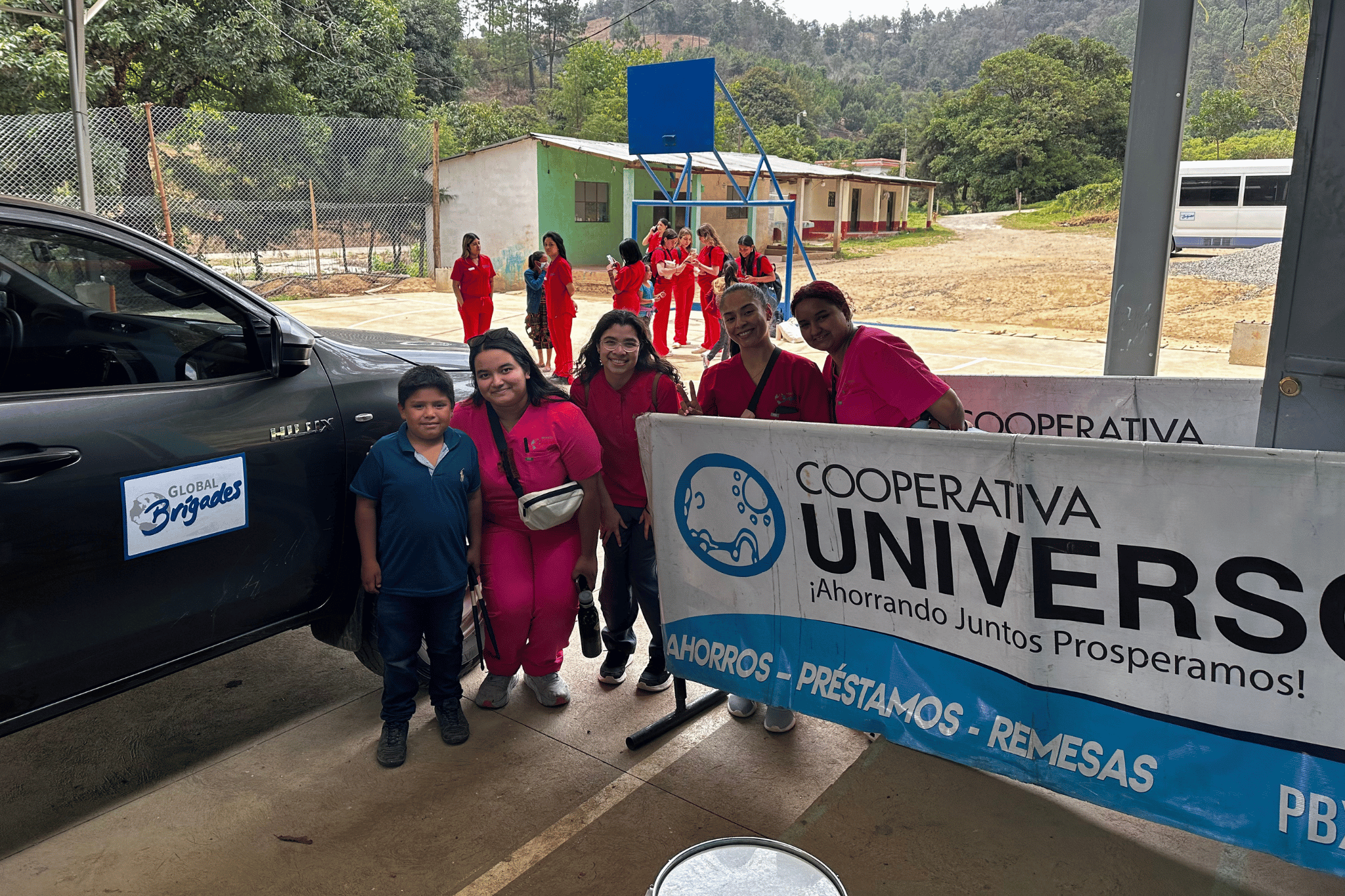Global volunteering can be a powerful tool for sustainable development around the world. However, even the most impactful organizations can come at an environmental cost. The biggest contributing factor is carbon emissions.
At Global Brigades, we’ve made reducing carbon emissions an important piece of our vision and mission. Through our Carbon Offsetting Program, we’ve taken on the goal of carbon neutrality while supporting reforestation efforts and economic opportunities in our partner communities.
Carbon Offsetting's Impact on International Volunteering
International organizations typically engage in activities that involve transporting volunteers from one place to another via air travel. Remote areas may require additional connecting flights to get volunteers to where they need to go safely and efficiently.
Carbon offsetting is a way to mitigate the environmental impact of our operations. By taking action and investing in projects that remove at least an equal amount of carbon dioxide from the atmosphere, our brigades became more sustainable.
Carbon Offsetting and the U.N.’s Sustainable Development Goals
The United Nations’ Sustainable Development Goals (SDGs) directly reference carbon emissions as a key factor in climate change (Goal 13). They also detail sustainable use of land-based ecosystems (Goal 15) as important to the health of our resources.
Carbon offsetting plays an important role in advancing those goals by mitigating emissions and supporting conservation and restoration efforts. The effects on Goal 13 are the most obvious.
Unchecked climate change affects highly vulnerable regions more intensely than low-vulnerability regions. It intensifies effects of food insecurity from drought and property loss or loss of life from flooding and other natural disasters.
Projects that reduce or remove carbon dioxide from the atmosphere are important to mitigating the effects of climate change, particularly in regions feeling its effects most acutely.
Carbon offsetting supports goal 15 by promoting restoration of ecosystems affected by climate change and human actions like deforestation. Projects that support biodiversity, address land degradation, and promote the sustainable use of the land enhance those ecosystems.
Programs that take a holistic approach and work in partnership with communities can also have a positive impact on local economies and the overall health and wellness of those communities. Global Brigades’ Carbon Offsetting Program launched in 2022 to touch on all of those areas.
Goals of Global Brigades’ Carbon Offsetting Program
At Global Brigades, we aim to operate as a carbon neutral or negative organization that keeps environmental sustainability at the forefront of everything we do. The goals of Global Brigades’ Carbon Offsetting Program are focused on 3 areas:
- Offset Carbon Emissions: We started by offsetting carbon emissions from volunteer travel. Eventually, we hope to achieve carbon neutrality for our entire organization.
- Economic Opportunity: We will provide new economic opportunities in our partner communities through our strategic planting initiatives. We build capacity in farmers and provide them with a monetary incentive to maintain the trees.
- Water Resources: We will work to sustain water quantity and quality for partner communities through reforestation of their watersheds.
The main hub of our efforts is on the ground in Honduras, a country with one of the highest deforestation rates in the world. That trend has only exacerbated the effects of climate change on agricultural activity, water resources, and biodiversity in the region.
How It Works
Global Brigades has partnered with over 30 farmers and 14 communities in Honduras in a planting initiative that both offsets our carbon emissions and supports reforestation efforts.
On-the-ground efforts are led by Hector Lagos, a Honduran agro-forestry engineer with years of experience running similar projects across the country. As of Q1 2024, we’ve planted over 11,000 trees toward a goal of 27,000 by the end of 2024.
How we got there is the result of meticulous planning and collaboration with our partner communities. Working in partnership with our communities isn’t only at the core of what we do. It’s a more holistic approach to international volunteerism.
We’ve also established a plant nursery with the capacity to produce over 15,000 wood and fruit tree seedlings. These seedlings will be used for reforestation or sold to like-minded organizations for revenue to allow our program to continue to grow.
Finally, we work with like-minded organizations across Honduras that can help us expand our reach. That includes the Honduran Institute for Forest Conservation, the Villa Santa Agroforestry Cooperative, and the Eastern Borders Cooperative.
You Can Get Involved, Too!
Our goals at Global Brigades are purposefully ambitious. Each global citizen who wishes to be a leader in sustainable development must show that we’re investing the time and resources to maintain that (and not just during travel).
There are things you can do on a smaller scale to reduce your own carbon footprint and cut carbon emissions:
- Start at home. Improve the energy efficiency of your home by using LED lights. Reduce your energy consumption by turning off lights and unplugging devices when they’re not in use. Moderate your use of heating and air.
- Cut food waste. If you find yourself tossing spoiled food on a regular basis, consider meal planning or improved food storage. Composting food scraps can also help reduce methane emissions.
- Cut water waste. Wait until dishwashers or laundry machines are full before you run a cycle. Use less water, especially hot water. It takes energy to get your water to a hotter setting.
- Walk (or bike) more. Opt for sustainable transportation options whenever possible to reduce your reliance on solo car trips. Use public transit and carpooling when distance demands it. Consider fuel-efficient or electric vehicles if that’s feasible.
- Educate yourself and others. Climate change remains abstract for many. Do what you can to raise awareness about how individual action can influence collective action, and the importance of sustainability.
- Support green organizations. Invest in renewable energy sources, even if you’re not able to go solar at home. Participate in local tree plating or reforestation projects. Choose to work with organizations that take their emissions seriously.
At Global Brigades, we’re always looking for volunteers interested in the work we do to resolve economic and health disparities in our partner communities. Learn more about our vision at Global Brigades or take a more active role under the “Get Involved” tab.





